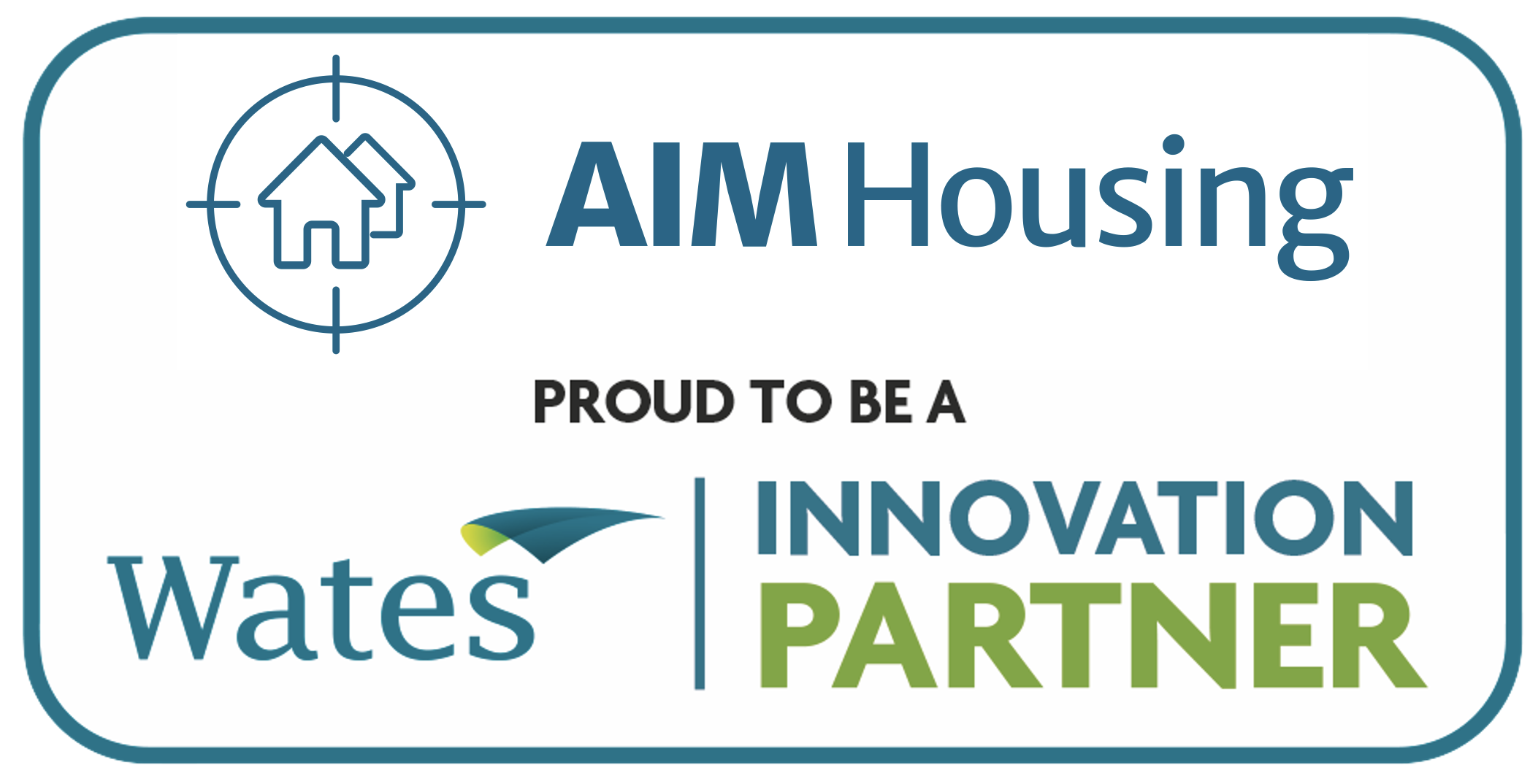
AIM HOUSING JOINS WATES INNOVATION PORTAL TO BOOST TRANSITION TO NET ZERO
AIM Housing property digitisation has been selected by Wates to be an innovation partner featured in its online marketplace for sustainable technologies.
The Wates Innovation Network (WIN) portal , created by the Wates Group – one of the UK’s leading family-owned development, building and property maintenance companies – connects companies directly with partners who can offer solutions to help them meet sustainability targets. Since launching in 2021 the portal has become home to an industry leading network of organisations that will accelerate the country’s transition to net zero by showcasing smarter solutions to design, construct and maintain buildings.
AIM Housing has been providing property digitisation over recent years, supporting whole house retrofit. As an innovation partner, AIM Housing has been approved by a screening panel including 40 environmental experts and will feature alongside 100 other suppliers. Visitors to the portal can choose sustainable innovations based on their requirements to find the product and supplier most suitable for them.
The Wates Innovation Network portal will enable AIM Housing to connect with businesses directly and better support them in providing tangible environmental and operational savings. The digitisation of properties holds immense value and potential for the housing sector. It offers benefits such as improved decision-making, reduced site visits, remote property management, preservation of digital documentation, accurate measurements, increased efficiency, and risk mitigation. By embracing property digitisation, stakeholders can optimise processes, save costs, enhance collaboration, make informed choices, and improve overall property management. The digital transformation of properties is a game-changer, unlocking hidden value and paving the way for a more efficient and sustainable future in the housing industry.
Danny Mckeown, Operations Director at AIM Housing, said:
“AIM Housing strives to help Housing Associations and local authorities digitise their assets; to reduce costs, improve workflow and collaboration, and help plan for improved future sustainability. In turn, helping improve living standard for residents and the local community.”
Dr Zainab Dangana, Head of Sustainable Technology Services at Wates, Commented:
“At Wates, we firmly believe that achieving net zero is not only necessary but also possible with the technologies available today. Our focus is on harnessing the power of innovation to accelerate this vital transition. I am proud to welcome 25 new suppliers to the Wates Innovation Network, expanding our marketplace to 118 providers of sustainable innovations.
By embracing these sustainable technologies, we can create buildings that not only minimise their carbon footprint but also optimize energy efficiency and enhance occupants’ well-being. Our collective efforts will not only contribute to a healthier planet but also drive economic growth and job creation”.
About Wates Group
Established in 1897, we are the UK’s leading family-owned development, building and property maintenance company. In 2022 we employed over 4,000 people and generated profits of £33.7m from a turnover of £1.89bn, working with a wide range of public and private sector customers and partners. Now in our fourth generation of family ownership, we’re committed to the long-term sustainability of the built environment and to making our industry more inclusive and representative of the communities we work in. We are one of The Times Top 50 Employers for Gender Equality 2023 and an Investors in People Gold accredited company. We are driven by our shared purpose of working together to inspire better ways of creating the places, communities and businesses of tomorrow. Wates.co.uk
For more information:
- For more information about the Wates Innovation Network, visit: wates.co.uk/win-portal
- Wates helps its customers and partners to achieve their sustainability goals by helping them to identify, select and implement cost-effective proven sustainable technologies that comply with regulations, lower carbon emissions, improve building performance and reduce operational costs. For more information, visit: https://www.wates.co.uk/who-we-are/sustainability/sustainable-technology/
- For more information about Wates’ commitment to environmental sustainability and net zero carbon, visit: https://www.wates.co.uk/environment/

Written by:

Danny McKeown
Operations Director
I am passionate about driving efficiency through effective solutions and prioritising the user’s perspective. Technology plays a crucial role in our approach, optimising our survey process and digitising our housing operations. By leveraging advanced tools and software, we enhance accuracy, reduce costs, and minimise disruptions to residents. Automation and digital platforms streamline workflows, improve data management and facilitate collaboration. Our commitment to efficiency and technology ensures high-quality services and client satisfaction.
Connect with Danny McKeown:



